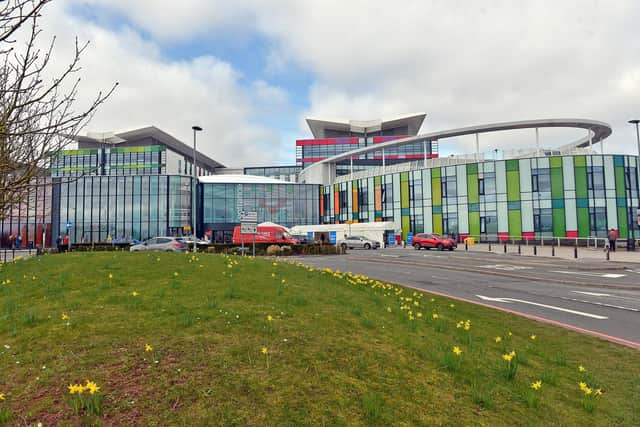King's Mill Hospital meeting new Government cancer waiting time
and live on Freeview channel 276
But Cancer Research UK said the Government needs to invest more in the NHS and raise its target to prevent tens of thousands of people across England being ‘left in limbo’ every month.
The Government introduced a new Faster Diagnostic Standard target last year for 75 per cent of people on certain cancer-related referrals to receive either a diagnosis or the all-clear within 28 days.
Advertisement
Hide AdAdvertisement
Hide AdMonthly NHS England figures show that between October and March, Sherwood Forest Hospitals NHS Trust – which runs Sutton’s King’s Mill and Mansfield Community hospitals – met this target five times.


One of these times came in March, the most recent data available, when the trust got back to 81.9 per cent of its 1,740 patients within 28 days, up from 81.7 per cent in February.
Maggie McManus, trust deputy chief operating officer, said: “We know the impact cancer has on the lives of the thousands of patients we come into contact with each year and those closest to them.
“Our hard-working teams at SFH are proud of our record of reducing the time it takes for patients to be checked-out following a referral from their GP, which is vital in avoiding any unnecessary anxiety and ensuring patients can either be given the ‘all clear’, or start the treatment they need as soon as possible.
Advertisement
Hide AdAdvertisement
Hide Ad“If you think you’re experiencing the symptoms of cancer, please speak to your GP team as quickly as possible.”
Cancer Research UK says an average of 65,000 people across England are waiting too long to find out whether or not they have cancer every month.
The 75 per cent target has not been reached yet nationally and fell to just 73.1 per cent in the most recent month.
Stress
Michelle Mitchell, Cancer Research UK chief executive, said: “Cancer waiting targets have been missed for years – the pandemic has only made this worse.
Advertisement
Hide AdAdvertisement
Hide Ad“Where you live affects how long you will have to wait – this is bringing stress and anxiety for those waiting.”
Cancer Research UK says the new standard aims to produce swifter diagnoses for patients, but due to chronic shortages of specialists, the target is too low.
The charity is calling on the Government to raise the goal to 95 per cent within its upcoming 10-year cancer plan to reduce the number of people "left in limbo" each month, as well as plan to ensure the NHS can deliver it.
The proportion of patients who received a diagnosis or had cancer ruled out within 28 days of an urgent suspected cancer referral nationally was at its lowest level in January – just 63.8 per cent.
Advertisement
Hide AdAdvertisement
Hide AdAt SFH, the worst performing month was also January, when just 69.7 per cent of 1,457 patients heard back.
A Department of Health and Social Care spokesman said: “We are improving outcomes for cancer patients across England and our new 10-Year Cancer Plan will set out how we will lead Europe in cancer care."
He said the Government's record investment in the NHS aims to cut waiting times, including delivering an extra nine million checks, scans and operations by 2025 as part of plans to tackle the Covid backlog.

